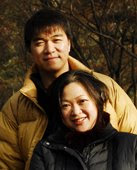Two months ago, a package of Pu'er tea weighing 30 kilograms would sell at a price of 16,000-17,000 yuan in the Shanghai tea market. Now, if the same package of tea were sold at 6,000 yuan, nobody would buy it. This year, the price of Pu'er tea once went up at an incredibly high level. Now, its price has started to drop in Yunnan, the native place of Pu'er tea, and also in Guandong, Fujian, Zhejiang and Shanghai.
Last week, this reporter went to some of the tea stores in Shanghai. The reporter found that the most expensive variety of Pu'er tea, the Guangyun Royal Tea Cake produced in 1960, was sold at 18,800 yuan, but not many customers visited these tea stores.
Some analysts attribute the sharp price fall of Pu'er tea to the speculation activities for the tea.
Statistics show that in less than three years, the price of Pu'er tea increased by 10-fold or even 100-fold. Last year, a package of a variety of Pu'er tea, called Qizibing, was sold at 1.6 million yuan in the auction market. Many farmers exclaimed that when they picked the tea leaves in the tea garden, they felt as if they were picking Renminbi notes! More and more people are becoming tea collectors. It is said that a person even sold his PMW car to collect Pu'er tea.
Meanwhile, tea companies have made lucrative profits from the tea production. Before 2000, a Pu'er tea company manager would be highly praised as long as he could avoid profit loss for the company. However, in the beginning of 2007, the price of Pu'er tea started to go up substantially. Production of Pu'er tea was regarded as a lucrative business, so many Pu'er tea company managers abandoned their old bikes and began to drive big flash cars to go to work every day.
However, the situation did not last long. Months later, the price of Pu'er tea fell sharply.
What caused such big drops?
The biggest problem is that there is no professional industrial standards set for the Pu'er tea industry. In Yunnan, for example, there are now more than 3,000 companies that process Pu'er tea. However, only 59 of them have passed the state's Quality Safety test. The quality of tea produced by small companies is inferior. Sometimes these small companies even produced some fake-branded products, which disturbed the market order of Pu'er tea production.




No comments:
Post a Comment